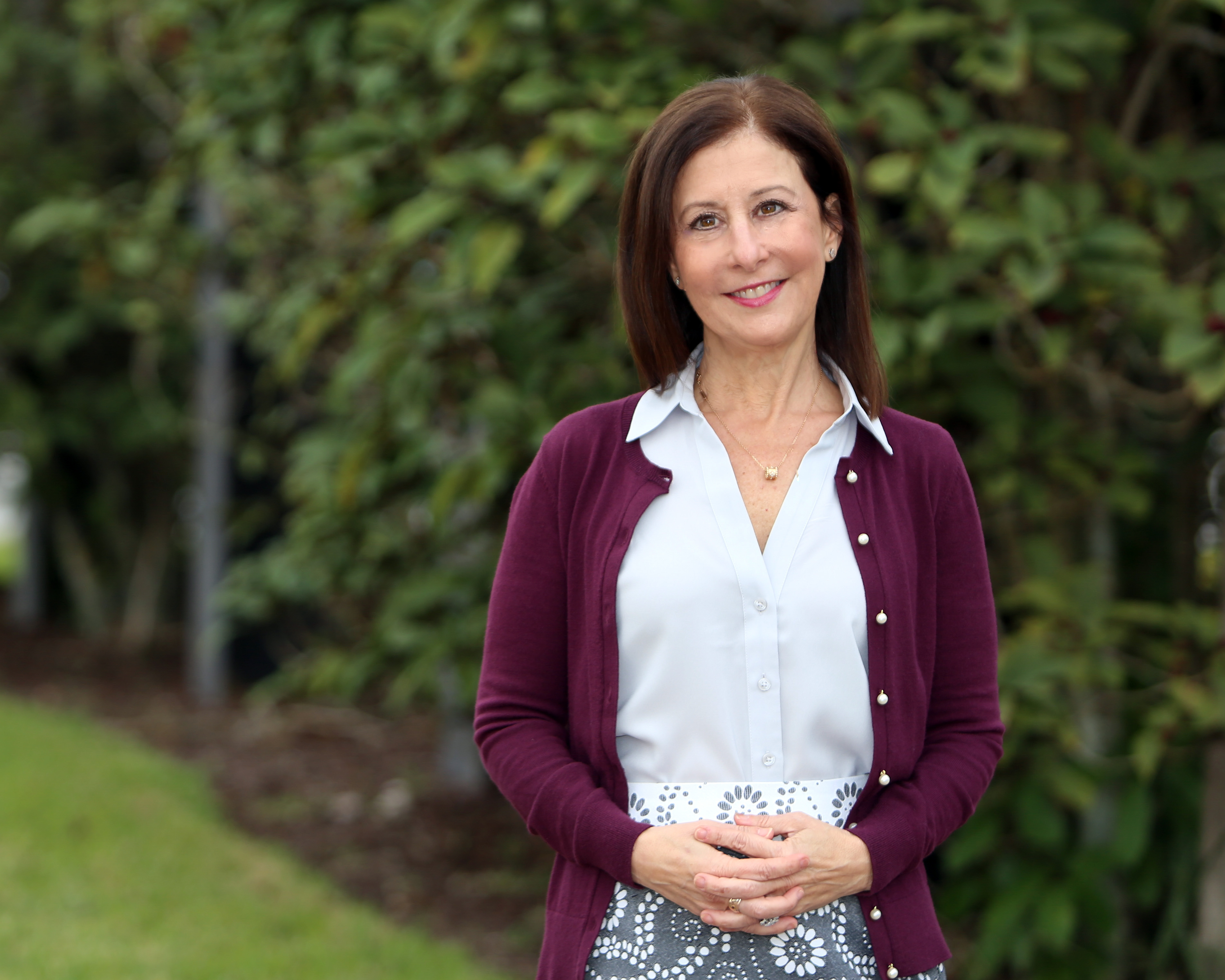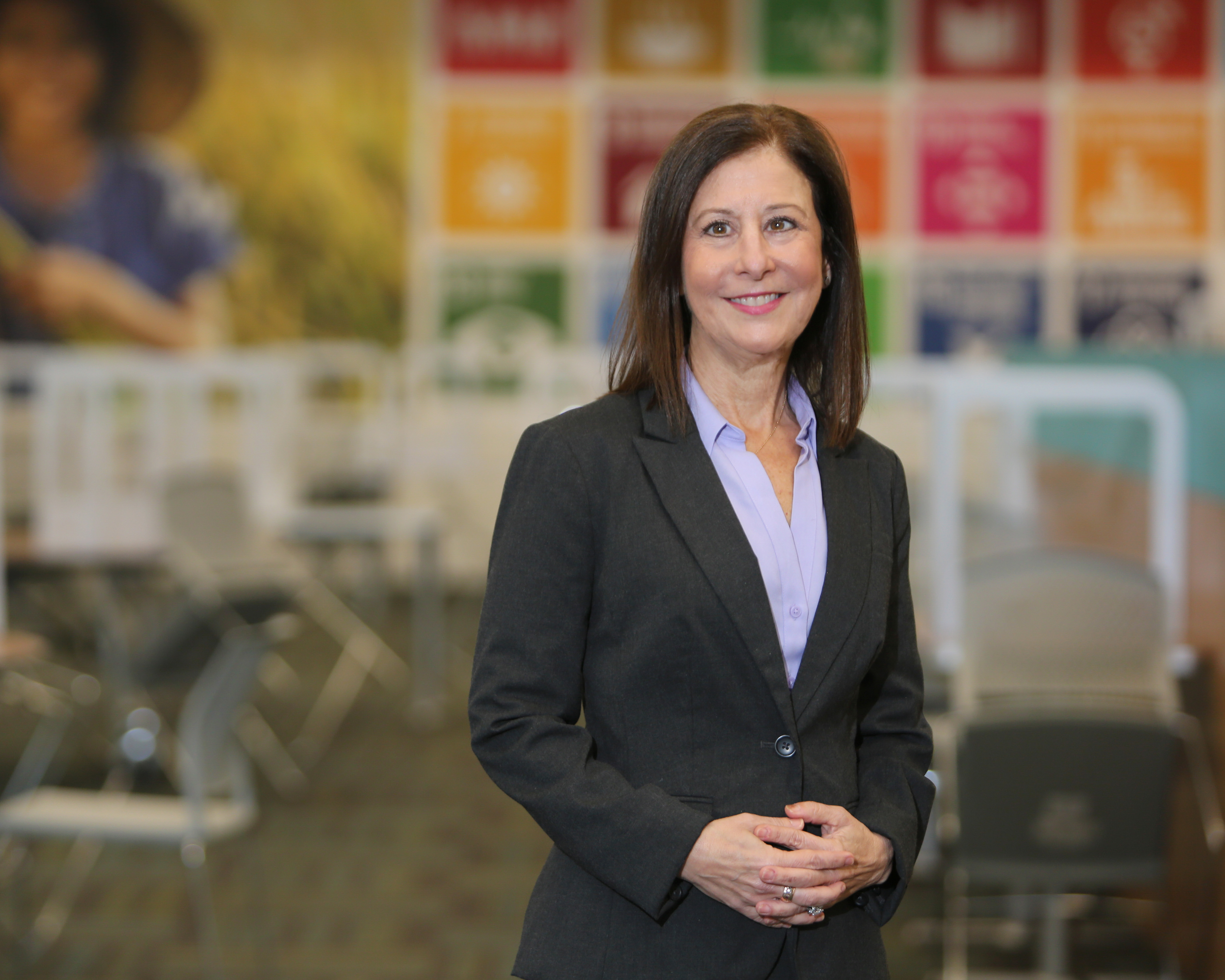- Home
- Video & Podcasts
- Leadership
- Podcast: Why mentorship is a must for school leaders
Podcast: Why mentorship is a must for school leaders

“I’ve always considered myself an accidental leader,” says Elise Ecoff, group education director at Nord Anglia.
For someone in a role that oversees the education strategy of a global group of 69 schools in 29 countries, responsible for educating 67,000 pupils, this may sound surprising.
Surely you don’t end up in such a job without a single-minded desire to reach the top?
Listen to the full interview below
Ecoff, though, says her career has been driven not by single-minded ambition but by mentors and leaders who were willing to provide opportunities for growth and development: “The theme of mentorship has played a huge role in my life. And I’ve tried to do that for others as well. That’s something that means a great deal to me.”
The importance of mentorship
These moments of trust have often involved being thrown in at the deep end: “In my second year of teaching - so really just a baby - my principal asked me to take a quasi-leadership role in a workshop that we were required to do for all of our teachers,” says Ecoff. “So here I was a very young teacher having to train other teachers in these new techniques.”
The experience was clearly a positive one, though, as it sparked a desire to find out more about leadership, and a few years later she was undertaking a master’s in educational leadership. This led her to leadership positions at a primary school, then a secondary school in Florida, which was later acquired by Nord Anglia.
Climbing the ladder
There, too, responsibility and opportunity came her way - and once again very much at the deep end: Ecoff became group director in July of 2020, slap bang in the middle of the pandemic.
At this time the group was in a position to finally take stock of what had unfurled from January onwards, as it saw its schools in China and South-East Asia start to put more established systems in place to cope with the new normal of remote teaching.
“When I came in, it was really about ‘how do we move from reactive to proactive?’,” she says.
Coronavirus: Sharing online learning expertise
One of the first ways she did this was to ensure that the experiences of teachers who had been through lockdowns and grappled with remote teaching were being shared across the group to help benefit as many other teachers as possible.
“When I took over, [I asked] what are we learning, how are we sharing that, how are we amplifying that across our family of schools?”
This led to the creation of a new resource area on the firm’s professional development platform - Nord Anglia University, with 10,000 resources shared by teachers within just a few months.
This work also involved asking teachers what they needed from the centre to help tackle any issues they were facing in this new reality: one concern that arose quickly was for more training in the technology platforms that were now central to online teaching.
“We recognised through surveys and teacher focus groups that we really needed to provide more tech training for teachers,” she says. “So we went out and curated the best of tech training so that people would come back to school really prepared this year [September 2020].”
Shining a light on great teaching
While this was a vital first set of actions, Ecoff says the challenge now is to build on this by not just allowing teachers everywhere to share their resources, but to identify the schools and teachers that are delivering exceptional results to really flag up and promote that across the group.
“[We know] there’s some brilliant work going on, that’s getting brilliant results so how do we share that and amplify that and make sure that everybody has access to that?”
“So there are some really exciting projects going on around learning from the best, understanding what data tells us and what place it has sort of in giving us really good insights into what’s going on in schools and making sure that we share that.”
You may think working like this, taking the best of the best from across the school group and sharing it, would already have been par for the course in a large educational organisation.
Other great Tes podcasts:
- The educational allure of Eastern Europe
- My Best Teacher...Tim Vine
- My Best Teacher...Lemn Sissay MBE
However, Ms Ecoff admits it has taken the pandemic to help people get better at sharing ideas.
“We always had opportunities for teachers to share but I think this sort of pushed us to think about what we share, how we share, how often and really look to our teachers to really help support and nurture the network,” she says.
And this new focus will also require a more strategic use of the data the group has - a process that Ecoff admits needs to evolve: “We have a lot of data, but are we using it really well? What is it telling us? Are we training our teachers to use that [data] to create a holistic picture of a child?
“I would never say that a teacher’s gut or instinct doesn’t have value because we know that it does, but I think there’s a whole piece [of work to do] around understanding what data can tell us.”
She says this would not only allow the group to glean ideas from teachers delivering strong grades or university placements, but also include a focus on helping teachers to better track and spot how pupils were doing throughout a school year - rather than once exam results are published.
“We’ve always looked at that end data, the external exams, but it’s really about going backwards and unpacking all the formative assessment along the way so you learn about how students are learning, what works for them, and then sharing that across schools, across regions and the global network.”
Does this mean more testing to deliver more data? Not quite. In fact, Ecoff echoes much of what was said during 2020 that the system of assessment currently used the world over - generally a single one-off exam at the end of a long period of study - may be ripe for a change.
Time for a change?
“I do think that students creating bodies of work that really substantiate who they are, that show all of those skills, that maybe you don’t necessarily see in an exam, so that you understand that students have a body of knowledge [...] is really important,” she says.
And while this does not mean exams should be dropped completely, she believes exams do need to be looked at again to ensure they are being set as effectively as possible.
“I think we have to look at exams differently. Are they asking students to repeat and regurgitate content? Are they really looking at applying skills, taking what I’ve learned and applying it in a new context?
“So I think we’re looking at how we design assessment for learning from pre-K up through our students going off to university.”
The power of the network
The reference to post-school life reveals another area where Ecoff is keen to do more - using the insights and opinions of Nord Anglia’s alumni who can speak with honesty about what worked for them in school - and what did not - to ensure teaching is meeting real-world needs.
“We haven’t really tapped our alumni into thinking about, what was it that prepared you or what did you wish you would have had more of [but] we need to think about our students in a really holistic way and that future beyond university.”
It is perhaps no surprise that Ms Ecoff is keen to learn from the experiences and insights of others to inform her work.
After all, her career has thrived because people were willing to turn to her and let her ideas come to the fore, and this is very much the type of leader she aspires to be.
“For me, it’s always about looking around, tapping people on the shoulder, giving people opportunity,” she says, adding that this must be the goal for all leaders, for all staff.
“We need to make sure we have pathways for everyone to continue to learn - I think it’s really important that teachers have opportunity to grow and to explore the possibilities, whether it’s a leadership role or something else in education.”
Opportunities for all
Of course, while the hope would be that such opportunities are always present, Ecoff acknowledges that not every setting will be as equitable as the next - as such, sometimes it is incumbent on those with the desire to grow that they voice new ideas or initiatives.
“I think if you are not finding the opportunities, you need to ask for it - and that’s not just saying, ‘I want an experience.’ It’s, ‘I have identified a challenge I think I have a potential solution for.’”
And if you do this and are still rebuffed? “If you are not being nurtured, if you don’t have access to training then potentially it is time to look for an environment where you can get those things.”
Ecoff is hopeful, though, that the growing awareness of the importance of ensuring that routes to the top are open for all teachers, and removing the barriers that have hampered this in the past, means more teachers can - if they seek it out - fulfil their ambitions.
“Change has been slow but I think there has been a spotlight on equity issues - for everyone - and we will continue to see people pushing for that. It’s an issue we all have to get behind in order to ensure we have the very best leaders in our schools.”
Listen to the full interview below:
Dan Worth is senior editor at Tes
You need a Tes subscription to read this article
Subscribe now to read this article and get other subscriber-only content:
- Unlimited access to all Tes magazine content
- Exclusive subscriber-only stories
- Award-winning email newsletters
Already a subscriber? Log in
You need a subscription to read this article
Subscribe now to read this article and get other subscriber-only content, including:
- Unlimited access to all Tes magazine content
- Exclusive subscriber-only stories
- Award-winning email newsletters





